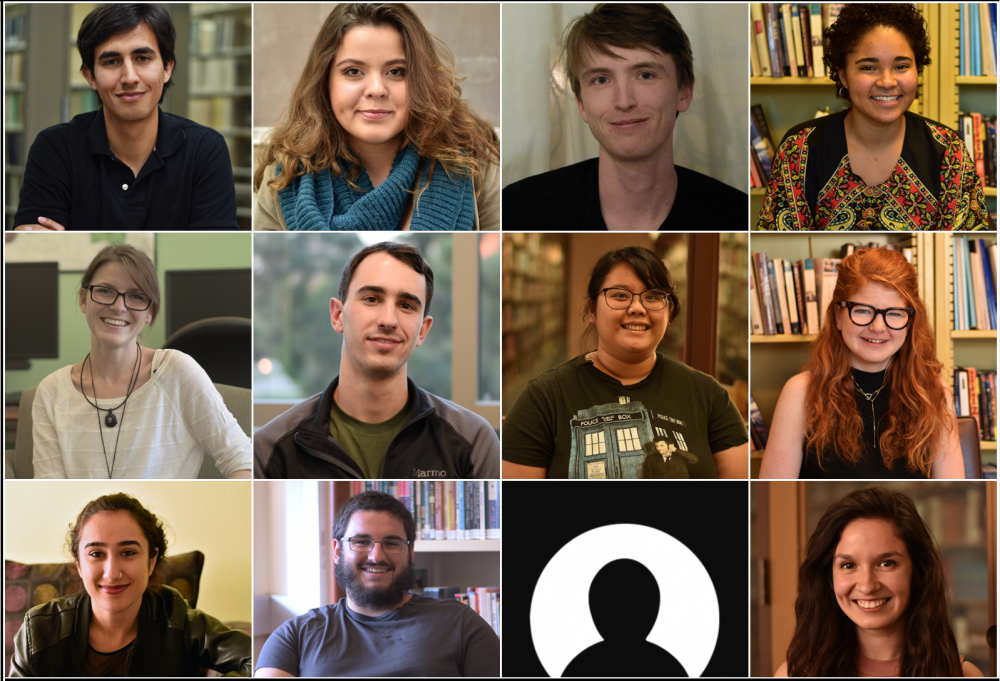
Voices Carry
In compelling video vignettes, UC Santa Barbara students describe how they pay for tuition, rent and bills by tolerating low-paying jobs — even when encountering on-the-job challenges such as demanding bosses, exploitation and even sexual harassment.
But rather than disenchantment, the students — who were asked to describe their part-time work for a research project — exude determination, combining their jobs, social activities, academics and families in an interconnected narrative.
Featuring dramatic storytelling, the multimedia presentation — “All Worked Up: A Project about Student Labor” — is one of 12 writing projects that undergraduates are developing in collaboration with faculty mentors under the Raab Writing Fellows Program, a year-long research effort funded by UCSB Trustee Diana Raab.
“Our team has not been surprised to find that UCSB students are incredible and incredibly complex people, who demonstrate persistence, grit, resilience and joy in the face of difficult circumstances and uncertain futures,” said Heather Steffen, a lecturer in the UCSB Writing Program and a mentor overseeing the “All Worked Up” project.
“The students are haunted by concern about what comes after college and daunted by the task of paying off their loans, and unsurprisingly these stresses are unevenly distributed among the student population, with low-income and minority students facing the most challenges,” she added. “But they are also deeply committed to leaving the world better than they’ve found it, to their friends and families, and to making the most of their education and the opportunities for volunteering, activism and social life that UCSB affords them.”
Steffen noted that researchers usually study one or two aspects of student life at a time, but long-form interviews and qualitative research that focuses on the “whole person” is crucial for figuring out how universities can best serve the changing student population. “Most students we’ve talked to are not working for ‘beer money,’ as the stereotype goes,” she said.
According to Steffen, “All Worked Up” was pitched as a documentary, based on a “striking” essay on resident assistants’ labor by undergraduate Chelsea Brandwein. “I hedged, wondering how to find a midpoint between yet another research paper and a feature-length film,” Steffen said.
Knowing the project required significant multimedia writing and design skills, Steffen was elated when another undergraduate with the requisite talent, Erika Carlos, asked to join the team — which also includes Nastacia Schmoll, a 2014 UCSB graduate. “By the time they had drafted the fellowship application,” Steffen said, “the documentary film was back on the table, but then it was just one part of a sprawling multimodal, mixed-methods research project that would also include interviews with dozens of students, a website and writing for popular and academic audiences.”
Describing the research as “fabulous” work, Madeleine Sorapure, director of the UCSB Writing Program, said: “It’s really a very developed project. They’re aiming for the ‘Independent Lens,’ a PBS weekly show featuring independent documentary films. So they really are very ambitious and super interesting.” Some of the other student projects are: Quincy Lee’s “Meeting of the Waters,” a travel journal to Manaus, Brazil; Andrew McMaster’s “Entering the Driver’s Seat: College and Growing Into Independence,” a study on how students come to see themselves as autonomous individuals during college; and Amy Tsang’s “Hidden Villa of Isla Vista,” a bonding experience between UCSB students and retirees living at Friendship Manor in Isla Vista.
The goal of the Raab Writing Fellows Program, Sorapure said, is to work one on one with a faculty member for a full year — pursuing a research project in more detail than possible in a quarter. Through the process, Steffen said she became more a collaborator on the “All Worked Up” project, providing feedback on articles, managing the budget and coaching the students on “new genres like grant and conference proposals.”
“The Raab Fellows’ voices will carry beyond their one-year projects,” Steffen added, noting the students’ research — which will be available online — will be presented Monday, May 22, during “A Celebration of Research and Writing: The Raab Writing Fellows Showcase” at 4 p.m. at the Mosher Alumni House. It is free and open to the public.



